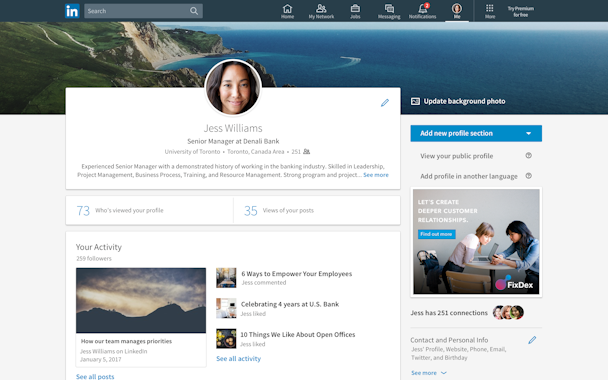Court rules LinkedIn can’t restrict access to members’ public data
The case could set a precedent for how much control companies wield over the consumer data they host.

A judge ruled Linkedin can't prevent third parties from accessing public member data.
On Monday (August 14), a US federal judge granted a request from workforce analytics firm HiQ Labs for a preliminary injunction against professional network LinkedIn to prevent the latter from restricting HiQ’s access to members’ public profile information.
The melee began when LinkedIn sent HiQ a cease and desist letter in May. HiQ has since posted it on the #ImWithHiQ section of its website.
In it, LinkedIn said HiQ “is using processes to improperly, and without authorization, access and copy data from LinkedIn’s website” and it is “impermissibly and illegally accessing and scraping data from LinkedIn,” which, it argued, violates member trust.
HiQ says it “[provides] a crystal ball that helps [clients] determine skills gaps or turnover risks months ahead of time.”
And, in response, HiQ said it “merely accesses data which LinkedIn’s members have expressly made public,” which LinkedIn itself has acknowledged belongs to members.
The lawsuit followed.
In response to Monday’s decision, a LinkedIn spokesperson said:
We’re disappointed in the court’s ruling. This case is not over. We will continue to fight to protect our members’ ability to control the information they make available on LinkedIn.
HiQ’s statement was far more extensive, calling this “an important victory – not just for HiQ, but for any company that uses publicly available data for the services it provides.”
HiQ said innovation “should not be stifled by legal bullying or the anti-competitive hoarding of public data by a small group of powerful companies” and it will seek a permanent injunction to prevent what it called “walling off sections of the public Internet…to eliminate market competitors.”
Some reports, including from Fortune, have stated that the case has far-reaching implications and could determine how much control companies wield over the consumer data they host.
And, for his part, Jamie Lockhart, senior solutions engineer at cloud services company Instart Logic, said a more pragmatic approach and ruling is needed for the benefit of content publishers as it suggests published content should be accessible and open to monitoring, but organizations can’t retain the right to defend their content from those who seek to scrape it for their own gain.
“Publishers need tools and the legal right to protect their content and defend their intellectual property,” Lockhart said. “At the same time, legitimate mainstream Internet services need some bots to be allowed to do their job.”

